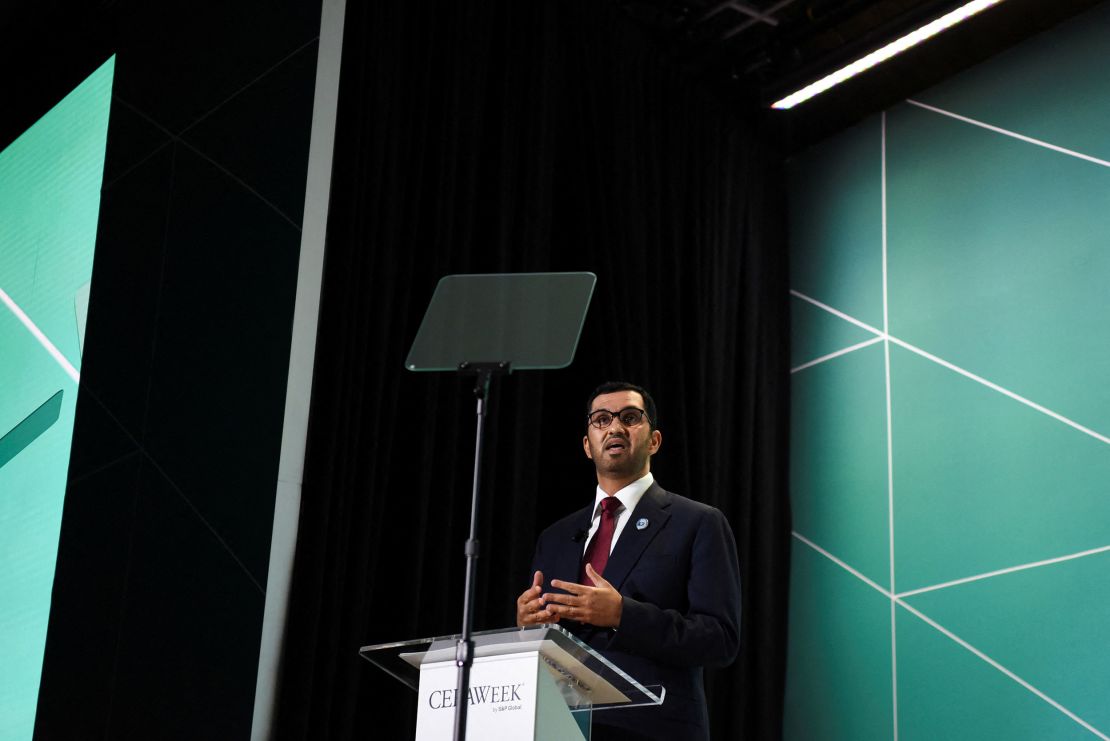Blue Carbon: A UAE company has secured African land the size of the UK for
CNN
—
In late September, Zimbabwe’s environment minister signed away control over a staggering amount of land — almost 20% of his country — to a little-known foreign company. Blue Carbon was a small, new outfit, not even a year old, but its chief was no fledgling entrepreneur: he was an Emirati royal whose family had ruled Dubai for 190 years, flush with oil money.
The Dubai-based Blue Carbon has secured forested land nearly equivalent to the size of the United Kingdom across five African nations to run projects to conserve forests that might otherwise be logged, preventing huge amounts of planet-heating carbon dioxide, or CO2, from entering the atmosphere.
Blue Carbon can then use that conservation to create carbon credits to sell to companies and governments to “offset” the climate pollution they generate while they continue to burn planet-warming fossil fuels.
The flurry of forest conservation deals with Zimbabwe, Zambia, Kenya, Liberia and Tanzania were announced in the months ahead of the annual United Nations’ COP28 climate summit, being hosted this year in December by the United Arab Emirates. But according to several analysts and climate advocates CNN spoke with for this story, these conservation deals are the latest attempt by the petrostate to use green initiatives as a smokescreen for its plans to continue pumping fossil fuels.
At the same time, the UAE has said it plans to extract its very last barrel of oil 50 years from now, when its reserves are projected to dry up — decades beyond when scientists say society needs to be done with fossil fuel.
A spokesperson would not confirm to CNN that the company would sell those credits to the UAE, but given Blue Carbon’s chairman, Sheikh Ahmed Dalmook Al Maktoum, is a relative of Dubai’s royal ruler — who also serves as the UAE’s prime minister — the widely held assumption among analysts CNN spoke with is that these credits will be sold to the UAE to offset its enormous carbon footprint. They could also be sold to other oil-reliant nations and companies in the Gulf and beyond. CNN has reached out to the UAE government for comment.
Blue Carbon would not confirm to CNN the area size of all its projects, how much money it has provided in financing or how many credits it hopes to generate. The agreements are in initial stages and not yet finalized.
But the company did tell CNN it would present its deals at the COP28 summit in Dubai as a “blueprint” for carbon trading. The annual climate summit is where global leaders and negotiators from nearly 200 countries will convene to decide how and when to ramp down fossil fuel use. The UAE is expected to use its COP28 presidency to push hard to include carbon removal — not just from forests, but also from oil and gas as they burn and then storing it underground — central solution to the climate crisis.
Climate advocates have criticized carbon removal — and scientists remain skeptical of its efficacy — as a ticket for companies to continue to produce and burn fossil fuels on a large scale, even expand, and profit handsomely.
The UAE has a lot to lose, financially. Oil and gas account for around 30% of its GDP and 13% of its exports as of last year, according to the US Department of Commerce. More than 80 countries support phasing out fossil fuels, and renewable energy, like wind and solar, are now so cost competitive in most parts of the world that market forces will eventually squeeze oil and gas out anyway.
Unless, that is, fossil fuel companies and lobbyists can convince the world at COP28 not to rely too much on wind and solar, and to keep pumping oil and gas.
The UAE has already been hit with a barrage of criticism since it put Sultan Al Jaber — who runs the nation’s mammoth oil and gas company, the Abu Dhabi National Oil Company (ADNOC), and serves as the nation’s international climate envoy — in charge of the negotiations. More than 100 members of the US Congress and the European Parliament in May called for Al Jaber to be replaced as COP28 president.
Al Jaber sees no conflict of interest in his many roles, he has said in multiple interviews. Nor does ADNOC, which told CNN in an email that there was “no one more qualified,” to lead the negotiations, pointing to his experience as leader of the nation’s renewable energy vehicle, Masdar, as well as its fossil fuels oil and gas company.

Al Jaber has long argued that fossil fuel companies need to be at the…
Read More: Blue Carbon: A UAE company has secured African land the size of the UK for

